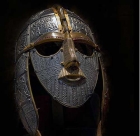General
Foundation Stage planning is a very different approach to Key Stage 1 or 2. Children in Nursery and Reception classes often have ‘continuous provision” - a variety of activities which children are free to move around among and choose for themselves. Sometimes activities will be provided where the teacher or classroom support works with all the children at different points during the week. Read more
Sort by:
Date (Newest first) | Title A-Z
Show:
All |
Articles |
Podcasts |
Multipage Articles
-

A History of the World: 100 objects that tell a story
ArticleClick to view -

A view from the KS1 classroom
ArticleClick to view -

A view from the KS1 classroom - investigating an artefact
ArticleClick to view -

A view from the classroom
ArticleClick to view -

Animals who help us: teaching past and present in EYFS
ArticleClick to view -

Any place for a database in the teaching and learning of history at KS1?
ArticleClick to view -

Archives in Primary History
ArticleClick to view -

Artefacts and art facts: images of Sir Francis Drake
ArticleClick to view -

Bring on the iPad revolution
ArticleClick to view -

Case Study: Classroom archaeology. Sutton Hoo, or the mystery of the empty grave
ArticleClick to view -

Case Study: Historical information and the local community
ArticleClick to view -

Creating a curriculum to help children in the early years understand the world in which the live: history and children in the early years
ArticleClick to view -

Creativity, Imagination, and Fun in Primary History
ArticleClick to view -

Doing History with Objects
ArticleClick to view -

Doing history in the early years and foundation stage
ArticleClick to view -

EYFS Medium Term Plan - Toys and Games
ArticleClick to view -

English Heritage's Heritage Explorer
ArticleClick to view -

Extending Primary Children's thinking through artefacts
ArticleClick to view -

Helping pupils to view historical film critically
ArticleClick to view -

History and the early years: A view from the classroom
ArticleClick to view


